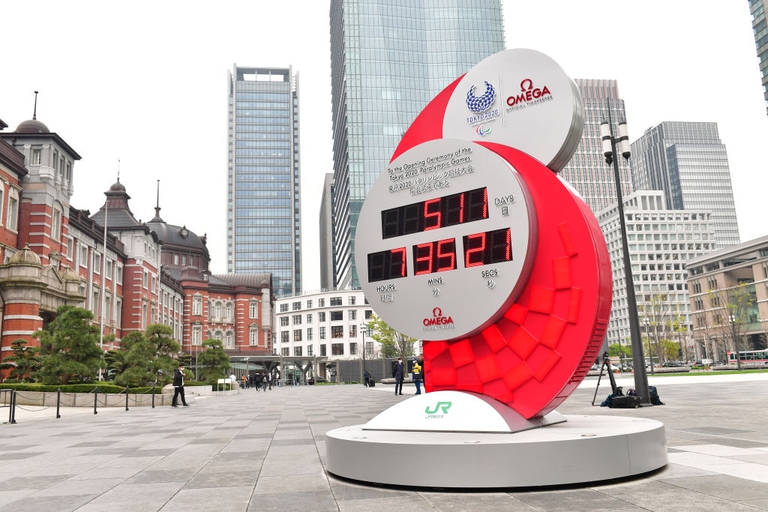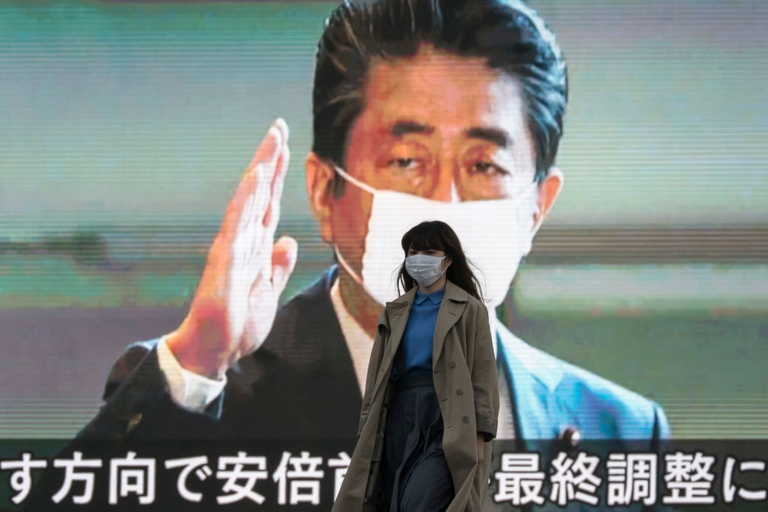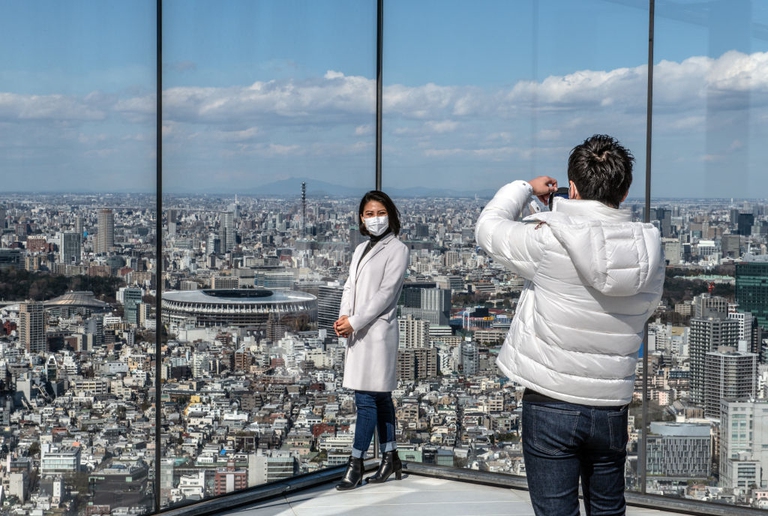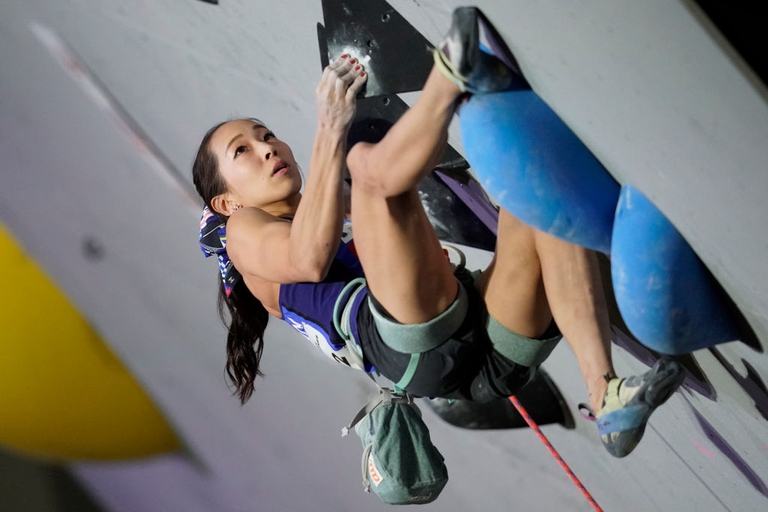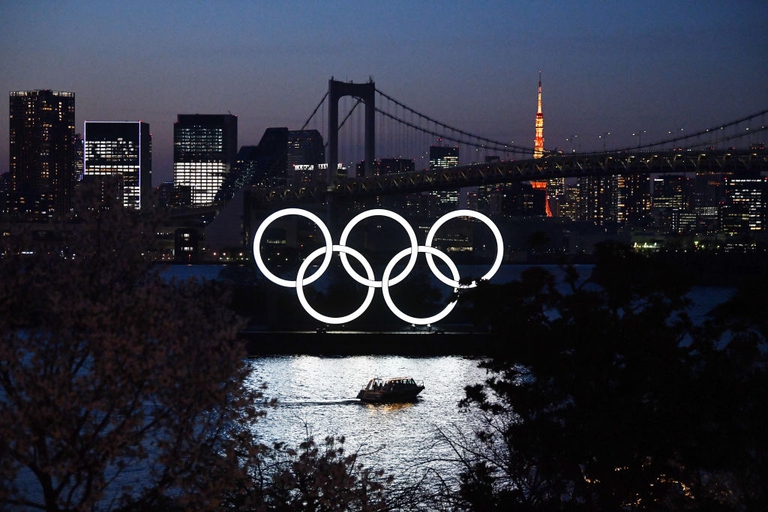
The second wave of the Covid-19 pandemic has shone a painful spotlight on the dire conditions of tea garden workers struggling against poverty in India.
Will Tokyo 2020 be the revival Games? Much uncertainty remains but preparations haven’t stopped as Japan remains committed to hosting the Olympics.
In Japan there are still many traces of the event that should have been held this summer. The Olympic logo is visible throughout Tokyo, on roadside banners, buildings and countless products on shop shelves. Athletes from the Mongolian and South Sudanese teams have continued training in the Japanese localities chosen for the final rush before the Games. And the Olympic torch, replaced with a lantern, remained on display at a sports centre in Fukushima. As the coronavirus pandemic forced the world to stop, so too was the road to Tokyo put on hold. But the announcement of the new dates has kicked things off again, including the Olympic countdown clock in front of the city’s main station.
In the meantime, five Tokyo 2020 merchandise shops have shut down in part because the national state of emergency (first extended and then lifted ahead of schedule, on the 25th of May) convinced many business owners to suspend their operations and in part because there’s still a lot of uncertainty around the hosting of the Games. This is just one, small way in which their postponement runs parallel to efforts to contain the pandemic.
Both the International Olympic Committee (IOC) and Tokyo 2020 organisers have created new task forces whose job is to organise the biggest event on the international calendar twelve months later than scheduled. Overall, the plan should follow the one designed for 2020, with the addition of a task force dedicated to ensuring safety measures against Covid-19. Furthermore, the Olympic and Paralympic ceremonies may be brought together into a single opening and a single closing event according to Yoshiro Mori, president of the organising committee. The ex-Japanese prime minister has also said the Games won’t be rescheduled if they’re not held next year, a statement reiterated by IOC President Thomas Bach. Though there was initially some disagreement around the Games’ feasibility hinging on the development of a vaccine, many, including the IOC, are now voicing concerns that the event may be untenable even if the latter is found. However, preparations continue whilst a clearer picture of Covid-19’s containment emerges in the coming months.
Read more: As Tokyo 2020 is postponed the Olympic flame stays in Japan as a symbol of hope
The Tokyo Metropolitan Government estimates that the Olympics will generate 294 billion dollars (US) in the Japanese economy between 2013, when the city won the bid, and 2030. In addition, two million extra overseas tourists were expected to visit the country this year, compared to 32 million in 2019. “Therefore, there’s the money that has been lost, i.e. the expected spending in the economy from June to September this year,” Leo Lewis, Tokyo correspondent at the Financial Times explains, “and the best figure is about three billion dollars. But this spending may take place in 2021 and, also, it’s not happening because people aren’t coming to Japan at all, so this figure is a bit false. The bigger question is what additional spending is required to host the Games next year”. Most of the 25-billion-dollar budget has been used up already, including by largely finalised infrastructure projects, and “the estimates the Japanese are using internally are that the additional cost is somewhere between two and six billion dollars“.
Of course, the not-so-marginal issue of who will pay the bill remains unanswered – the scale seems to be tipped mainly towards the Tokyo and national governments, with the IOC recently pledging “just” 800 million dollars –, one that “Japanese people who think there are better things the country could be spending its money on,” as Lewis puts it, are likely concerned about. At the moment the parties are engaged in complex discussions whose outcome is still unclear. What is interesting is understanding how people in Japan perceive this process.
While there are sceptics, many are enthusiastic about the country being chosen for the Games. “We’re really excited and honoured because it’s a once-in-a-lifetime opportunity,” says Hiroko Imai, content creator and influencer who lives in the host city. “When I find out Tokyo had won the bid, I was delighted,” recalls climbing legend Akiyo Noguchi, winner of multiple international titles and member of the Japanese Olympic team who, at the age of thirty, wants “to make Tokyo 2020 my last stage as a player”. While it’s hard to imagine the sense of euphoria transforming into anything but disappointment over the postponement, a number of observers have noted that the general reaction has instead been of acceptance: shikata ga nai, “it can’t be helped”.
“I expected some people would be upset,” explains Imai, who interviewed passersby in Tokyo to gauge people’s reaction in the aftermath of the announcement. “But almost everyone said it was the best choice because people’s lives and health come first. Most people were even relieved”. Lewis also recounts that, “it was kind of a relief for the country, which could finally concentrate on keeping Covid-19 from doing more damage”. Not only did practical priorities change but the narrative did too. “Beforehand Japanese broadcasters weren’t serious about communicating the risks around coronavirus,” according to Imai, “but afterwards, the style changed”.
“At first I had mixed feelings because I had a training plan focused on this August,” says Noguchi. “However, I’m happy to be able to do my favorite climbing for another year. My motivation is to show my fans that I’ve evolved even more”. Expectations remain high in her sport, which should be making its Olympic debut. “In general, Japanese people are smaller so there aren’t many Olympic sports we excel in,” Tokyo climbing gym owner Shimon Torii believes, “but the fact that climbing is one of the disciplines in which we’re favoured to win is exciting. Hosting the Games is Japan’s chance to show how strong we are”.
Torii’s eyes shine bright as he speaks about the sport he’s dedicated his life to, even though “economically it’s a difficult time”. In fact, national attention remains focused on the current emergency more than on the postponement of the Olympics. While Japan seems to have succeeded in flattening its infection curve, some believe “the government isn’t doing a great job in supporting its people,” in Torii’s words. So much so that though “Japanese people don’t usually speak up, this time they complained that plans to help citizens weren’t satisfactory,” Imai recalls. “People were angry and the government changed its response”.
For the time being these are the pressing daily matters, yet Tokyo 2020 remains an important reference point, and not just a temporal one. “The Olympic Games can stand as a beacon of hope to the world during these troubled times, and the Olympic flame can be the light at the end of the tunnel in which the world finds itself at present,” John Coates, who heads the IOC’s Coordination Commission, said. “Japan too needs the dream to stay alive,” because according to Lewis, “if a year from now we’re preparing for a fantastic revival Games, even with some restrictions, it would be a big deal”. The priority is for countries to return to the conditions that would enable them to actually participate in the postponed Olympics and, “it’s going to be a while before we can say whether the Games are the light at the end of the tunnel,” in Lewis’ words. However, if they do remain a symbol of hope for people around the world, then the pandemic will have failed in casting a permanent shadow on our collective spirit of resilience.
Siamo anche su WhatsApp. Segui il canale ufficiale LifeGate per restare aggiornata, aggiornato sulle ultime notizie e sulle nostre attività.
![]()
Quest'opera è distribuita con Licenza Creative Commons Attribuzione - Non commerciale - Non opere derivate 4.0 Internazionale.
The second wave of the Covid-19 pandemic has shone a painful spotlight on the dire conditions of tea garden workers struggling against poverty in India.
In response to a lack of public services, organisations and individuals are helping citizens weather the devastating Covid-19 crisis in India.
A study indicates that the zoonotic origins of coronavirus may have been favoured by global warming’s impact on the conditions for bat habitats.
While Africa’s Covid-19 response has been praised by some, the pandemic has triggered the continent’s first recession in 25 years.
In Coronation, a documentary filmed by the people of Wuhan, the dissident Chinese artist documents the government’s rigid control during lockdown.
David Nabarro of the WHO analyses worldwide actions against the pandemic. Lockdowns alone aren’t a sustainable response to stopping Covid-19.
Kenya may fail to meet its target of ending female genital mutilation by 2022 as Covid-19 school closures have seen more girls undergo the illegal practice.
Helsinki Airport has begun implementing a Covid-19 test which is both noninvasive and simple. The exceptional nurses involved are dogs.
The drop in air pollution during worldwide lockdowns helped prevent thousands of premature deaths. But the situation is returning to pre-crisis levels.
